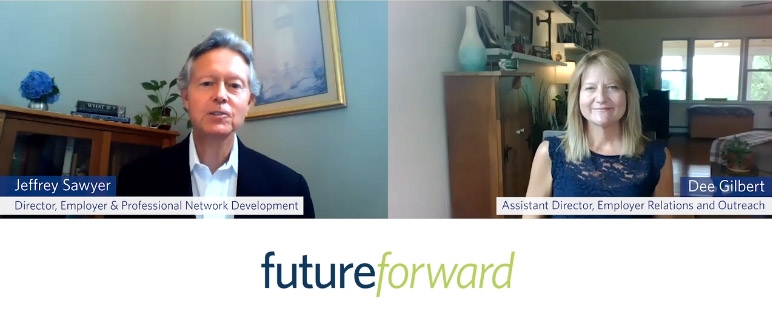Future Forward
Leaders Share Their Future Outlook
futureforward features several alumni and parents who are leaders in a variety of career fields, discussing their industry’s current environment, their perspective on the future outlook for that career field, and action steps you can take now to position yourself for entry into those career fields.
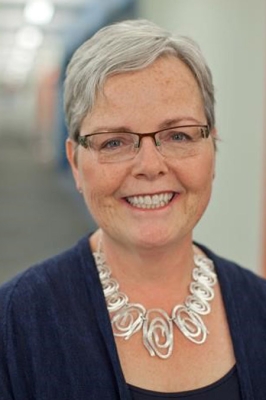
Joyce Maroney ‘78
This Future Forward segment features Joyce Maroney, a recently retired technology executive. Joyce retired from the high tech industry in 2020. Her 40+ year career in technology with IBM, several start-ups, and most recently as the founder and executive director of The Workforce Institute at Kronos, has given her exceptional experiences informing her perspectives on both the technology career field and the workforce more generally. Joyce graduated from Middlebury in 1978 with a degree in Biology, followed by an MBA in Finance from Boston University. She is joining us to share her learnings from her extensive career in technology, including: current composition of the industry, industry trends and dynamics, and action steps you may want to consider to position yourself to enter this field in the future.
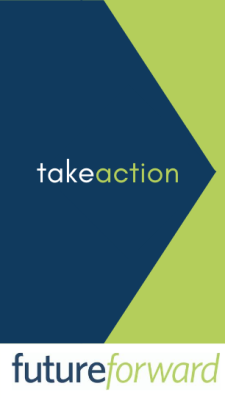
Joyce noted that having a computer science degree is not always necessary to land a job in technology. Understand the basics of data analyses and statistics and add micro credentials to your résumé through organizations like General Assembly. Demonstrate to employers that you can work on a team and think beyond the current limitations. “Tech needs the kinds of insights that critical thinkers and liberal arts grads can bring to the table.”
Joyce also suggests finding people who are doing what you are interested in and find out how they went about it. Start by reaching out to an alum on Midd2Midd or find connections on LinkedIn.
Advisors in CCI are available to help you explore your interests and see where you can utilize your strengths. Schedule an appointment on Handshake!
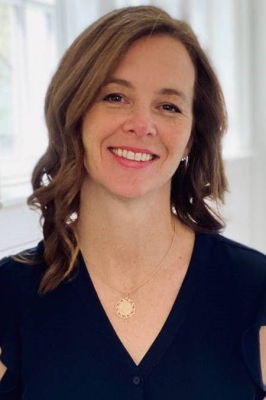
Lucie Ide ‘97
This Future Forward segment features Lucie Ide, Founder and CEO of Rimidi, a leading clinical management platform for the health care industry. Lucie is an experienced health care executive with a demonstrated history of understanding complex problems and developing innovative, impactful solutions. She is also a member of the Women Business Leaders of the U.S. Health Care Industry Foundation, as well as, a Trustee of Middlebury College. Lucie graduated from Middlebury in 1997 with a degree in Physics and Spanish. She is joining us to share her unique perspectives on the intersection of patient care, data, technology, policy and purpose in the rapidly evolving health care market, including: a snapshot of the evolving health care market, some of the challenges and opportunities influencing the future of this field, and her career advice for you to position yourself to enter the health care field in the future.

Lucie reminds you to take advantage of your writing skills. Communicating effectively, succinctly, and clearly will be essential throughout your career path. Own your uniqueness and think about the advantages your diversity brings. According to Localized, Silicon Valley is hiring more liberal arts graduates for their critical thinking and problem-solving skills. Liberal Arts thinking informs engineering decisions. Stay up to date on the current trends in the career area of interest by consuming articles, TED talks, and podcasts. This knowledge will help you during interviews and conversations with key connections. Check out LinkedIn Learning for skills to add to your résumé.

Lan Ye ‘98
This Future Forward segment features Lan Ye who is the Corporate Vice President of Microsoft Teams, a product in the communication & collaboration software market with which we are all familiar by now. Lan has been with Microsoft in various roles for many years since graduating from Middlebury in 1998 with a degree in Computer Science and Studio Arts. She is joining us to share her perspectives on technology’s impact over the past year, how the current change dynamics are shaping the future, and action steps you may want to consider to position yourself for that future.

In addition to the critical thinking and communication skills you learn at Middlebury, the ability to synthesize complexity will be essential in any technical or non-technical role. Lan reminds you to be curious about technology. The more you understand, the easier it will be to collaborate with others. Earn certifications that show you are keeping pace with today’s technical roles and requirements through Microsoft Certifications. You can also explore courses in Technology, Data Science, Computer Science, Business, and more on Coursera.
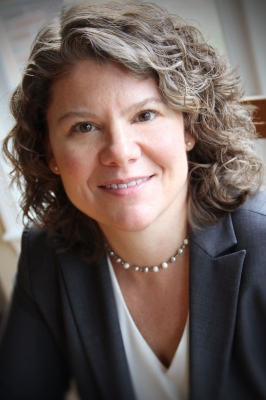
Heidi Rehm ‘93
This Future Forward segment features Heidi Rehm, Chief Genomics Officer for the Center for Genomics Medicine and Department of Medicine at Massachusetts General Hospital. She is also the Medical Director of the Clinical Research Sequencing Platform at the Broad Institute, and a Professor of Pathology at Harvard Medical School. Heidi has over twenty-five years of experience in the genomics field from her PhD program in genetics at Harvard which she began directly from her Middlebury graduation to her present roles. She graduated from Middlebury in 1993 with a degree in Molecular Biology and Biochemistry. Heidi is joining us to share her perspectives on the field of clinical genomics, including: a brief overview of the genomics field, some of the challenges and opportunities influencing the future of this field, and her career advice for syou to position yourself to enter this field in the future.

In addition to taking classes in Biology and other fields related to medicine, if you are interested in Genomics medicine, you should take computational science courses, which are about the use of computers to solve science and engineering problems. Additionally, internships in laboratory or healthcare fields are ideal to get exposure to research or clinical genetic testing. Heidi says that having an enthusiasm for learning and letters of recommendation that show that energy will help you secure an internship.
You can learn more about careers in medical genetics and genomics from the American College of Medical Genetics and Genomics. Check out fellowships and scholars programs with the National Human Genome Research Institute.
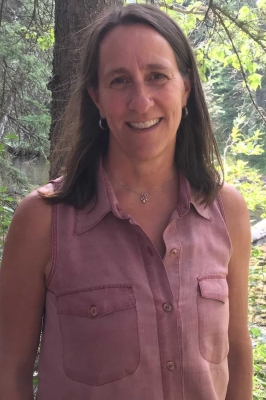
Jodi Hilty ‘93
This Future Forward segment features Jodi Hilty, President and Chief Scientist of the Yellowstone to Yukon Conservation Initiative. Jodi has over twenty years of experience in conservation, research, and application of science-based solutions to complex conservation challenges. She graduated from Middlebury in 1993 with a degree in Geography. Jodi is joining us to share her learnings from her extensive career in environmental conservation, including: the top challenges in the conservation field, some of the leading scientific and technological developments affecting the conservation field, and her career advice for you to position yourself to enter this field in the future.

Jodi says your liberal arts background is a great foundation for a career in conservation. In addition, having a diversity of language can open doors. An ability to write and an understanding of the world’s major religions can help you identify with people and communicate effectively.
Search for internships and jobs on Handshake by using filters and entering “conservation” in the search field. You can also download a list of conservation internships cultivated by Conservation Careers. If you would like to stay in Vermont, check out internships and jobs at the Department of Environmental Conservation at the State of Vermont.
Consider joining a professional society or organization like the Ecological Society of America, the Wildlife Society, Geological Society of America, Society for Conservation Biology or Society of American Foresters. These are just a few examples of professional societies that current staff in the conservation field may belong to. Joining a professional society often has an annual cost but there are significant benefits including meeting people in your field, networking events, mentorship, a jobs board, and professional development opportunities. Joining a professional organization also helps join you to the community in your field and looks good on your resume.
You can also check out guides for finding and applying to Federal government jobs, non-profit, education, and the for profit sector at Diversity Joint Venture for Careers in Conservation.
Find out more about the Yellowstone to Yukon Conservation Initiative (Y2Y) and see a list of career opportunities at Y2Y and environmental, conservation, science and biology jobs at organizations in the Yellowstone to Yukon region. If you are interested in soil and water conservation, the Soil and Water Conservation Society (SWCS) announces summer internships each year in March.

Mia Little ‘07
This Future Forward segment features Mia Little who is a Cyber Security Attorney with Microsoft. Mia has had a variety of career roles as a data scientist, a national security legal fellow, a privacy and government surveillance fellow, and cyber security attorney in her years since graduating from Middlebury in 2007. She is joining us to share her perspectives on the cyber security field, including: the size, scope, and challenges confronting society in the cyber arena, what our cyber security future looks like, and action steps you may want to consider to position yourself to enter this field in the future.

Mia offers great advice to anyone interested in the cyber security space. Communication, organization, and presentation skills are essential. Active listening and being able to read people will set you apart as a leader.
Mia says an important skill to learn is how to influence without authority. Read more about this in Allan Cohen’s book, Influence Without Authority.
Consider certification and or training in program/project management. The Project Management Institute is a great resource. SANS offers cyber security training, certifications, degrees, and resources. Remember to check out LinkedIn for free courses on valuable skills you will need in the workforce. One of Mia’s favorite quotes from a former supervisor: “If you are not given a seat at the table, sometimes you have to bring your own chair.”
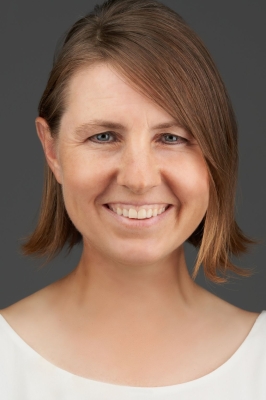
Beth Downing ‘01
This Future Forward segment features Beth Downing, CFO of Avansic, a start-up and leading provider of eDiscovery and digital forensics services to attorneys, litigation support teams, and the business community. She has held several different functional roles with Avansic, including operations, marketing, communications, and finance. Beth graduated from Middlebury in 2001 with a degree in Biology. Beth is joining us to share her perspectives on the growing aspects of digital information and Electronically Stored Information or ESI in our daily lives, including: a broad overview of the ESI landscape, the limitations and opportunities in the future driven by digital innovation and our use of data and information, and her career advice for you.

In addition to critical thinking, coding and writing will be essential skills to possess in any STEM field. One helps you talk to machines, and one helps you talk to the people on your team, fellow employees, and clients. Beth says that of all the skills she learned at Middlebury, writing is the one she uses every day. Being able to write intelligently, knowing your audience, and being able to use language to say what you need succinctly and efficiently is a critical skill. In addition, your ability to interact with computers and technology is so much more whole if you know how to speak to them. Learn the logic systems that go into coding. Look for summer internships on Handshake by entering “code” or “coding” in the search field. Set up an alert to learn of new opportunities as they are posted. Consider enrolling in a coding bootcamp. Check out some of the free online courses available from Harvard University and Coursera, and other e-learning course platforms that will give you an edge. You can also take up courses offered by Google, IBM, and Amazon’s cloud unit Azure that specialize in niche fields. Read about these seven tech skills that will be even more valuable post-pandemic.


